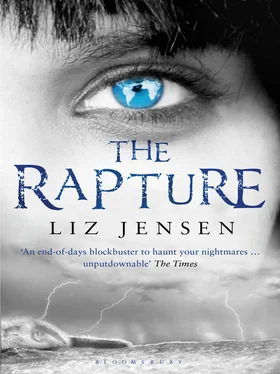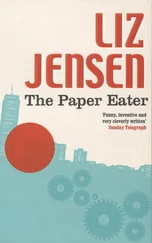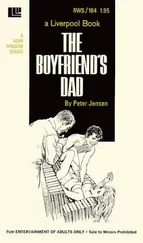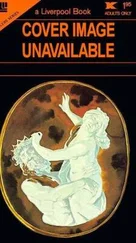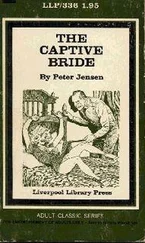I’m finding no comfort in mine. When I roll the window down, there is a fetid smell, as though the moon has rotted and exhaled a candid lunar foulness across the ocean. It feeds my unease and reminds me — more than I care to be reminded — that an island is a prison. If we did somehow make it to safety, what kind of safety might that be? How does a paralysed woman go about surviving in an overheated, flood-swamped, ransacked world with wrecked communication, diminished resources, and no readily available supplies of food? Will we be looting supermarkets for bottled water, sugar and canned sardines? Planting cabbages? If we require guns, will we know how to fire them, and at whom? Perhaps, deep down, if I’ve assumed anything, it is that the disaster won’t happen. Or that if it does, we’ll die, quietly and efficiently and without pain, via the application of an inner delete button which permits us to be here one second and gone the next. Until now, the thought of my own demise hasn’t scared me — perhaps because I have already kissed death long and hard enough to feel a sick intimacy. But now, with the spectre of catastrophe massing behind the stacked clouds, I discover I am not ready to kiss it again. Apart from anything else, I have a healthy fear of pain.
‘What kind of people live on these Planetarian settlements?’ I ask Frazer Melville in an undertone. I have been trying to picture such a place, but all I can conjure are the images I have seen in magazines: humped rows of solar-panelled eco-shelters, wind turbines, beet and hemp fields, fish-farms, indoor vines and muddy toddlers in wellington boots. Beyond that, and my acquaintance with Harish Modak’s pessimistic assessment of Homo sapiens’s prospects as a species, I don’t have a clue.
‘Like Harish said. Farmers, doctors, engineers,’ replies Frazer Melville, his eyes fixed on the road. I envy him something to focus on. ‘The people you’d need.’
‘Physicists, palaeontologists, pessimistic old farts, gay climat-ologists, fucked-up shrinks,’ Bethany offers from the back seat. ‘And teenagers. For breeding purposes, right?’
I should probably cry at this point, but I find myself doing the opposite. If a little hysterically.
‘I visited one in Canada once,’ says Frazer Melville. ‘You have to get into a whole new way of thinking.’
‘In a good way or a bad way?’
He shrugs. ‘In the only way.’ He glances at the sat-nav. ‘We’ll be at the stadium in two hours.’ His face is rigid with concentration.
‘Injured at work?’ enquires Marge Simpson. ‘What’s your case worth? Call now and talk to an expert. Office Sense: financial planning redefined.’
Some time ago, Ned called to say they would fetch us by helicopter from the centre of the stadium sometime after the press conference. In the meantime, if need be, we’d stay in touch by phone. We should keep an eye on the news on the dashboard TV. But he warned us to be careful: if a link is made between Bethany and what is about to happen, things will get ugly.
As if they aren’t now.
After I woke from my coma after the crash, the ‘one day at a time’ principle of coping ruled. Though often it was one minute, or even, in times of extreme pain, ten seconds. Drugs helped. The rest was down to self-delusion, a skill I’d previously scorned. Now, with the long-term definitively lost from the radar, and the future stretching no further than the conceivable handful of hours we have left, that principle reigns again. In World War Two, during the Blitz, down in the bomb shelters, men and women shagged like rabbits. In this moment I have an exquisite understanding as to why.
We’ve entered a wilderness of low-cost housing, burger bars and wrecking yards piled with picked-over vehicle carcasses and defunct scaffolding. When I roll the window down again, it isn’t for long. Bethany squawks ‘what the fuck?’ and Frazer Melville coughs in protest. The reek has taken on a putrid, ferrous edge. I close the window swiftly and gulp, fighting back a volcanic sensation of nausea. This is new psychic territory. We should get visitors’ badges. As the kilometres pass, the odour intensifies. At eleven o’clock we switch on the news on the tiny dashboard TV, and discover the reason. Tens of thousands of jellyfish have been washing up and disintegrating on the beaches of Britain, Scandinavia and northern Europe. Pictures from space show vast shoals moving towards the coasts like subsea clouds, while terrestrial images reveal whole armadas bobbing darkly against the shoreline and gathering in concentric ridges, as though a manic giant has garlanded the coastline with bubble wrap. Frazer Melville’s hands tighten on the wheel. ‘They’ve sensed it,’ he says. Moments later, when we skirt the shore again, we see it for ourselves. Illuminated by a fierce shard of sunshine, the beach glitters. For a moment we say nothing, absorbing the freakish dazzle of jelly and mucus. Then Frazer Melville points up at the sky, where a flock of black birds is circling. Soon the air is dark with them.
‘They’re leaving,’ he says.
‘Where to?’ I ask. ‘Where can they possibly go?’
‘Same place we’re going,’ murmurs a cracked voice from the back seat. She laughs dirtily. I glance back at her. The black kohl around her eyes is beginning to smudge. A glue-on metal stud on her upper lip hangs loose, and the sooty lipstick has faded to the unearthly grey favoured by zombies in splatter movies.
The TV news continues with a report about unusual dolphin and bird activity across the entire east coast of Britain, and into the Channel. A map zooms out from the UK to cover the whole North Sea region: a series of animated graphs shows how the disrupted shoaling and flocking is spreading outward from the Norwegian coast. There, marine biologists have speculated on a link with Buried Hope Alpha. Bethany, unimpressed, yawns wide and closes her mouth with a clack. ‘ Meanwhile the environmentalist Harish Modak, who has claimed responsibility for this morning’s geo-graffiti, will be holding a press conference at one o’clock to explain why he’s drawing attention to Traxorac’s methane rig in the North Sea .’ I try to envisage Harish, Kristin and Ned confronting the global media in a hotel conference room. The cameras flashing, the bouquets of microphones tilted in their direction. And the aftermath: traffic snarls, road rage, fighting, looting, crude, vicious scramble for safety. At a traffic lights on the outskirts of Lowestoft, I picture a reef of destruction. That woman over there, struggling to heave the plastic shopping bags out of her car boot; the chubby little girl in a violet sweatshirt that says Mean Bitch, her hair divided into a hundred tight braids; the man in the suit carefully removing a blob of chewing gum from the sole of his shoe; the woman in the hairdresser’s window flicking elaborately customised fingernails through the pages of Heat magazine; the entire staff of that SUV dealership offering incredible one-year finance packages. An overweight child from Lowestoft in a T-shirt that says Mean Bitch does not represent the glory of mankind. But nor, in this moment, does she diminish it. She is simply herself. Just as I am me, sitting in a car sipping bottled water and scaring myself sick. The TV news has segued into another weather report. We drive on, out of town. The skies have broken over Scotland, bringing heavy rain. Storms are sweeping rapidly south. Commercials for life insurance and weight-loss clinics kick in, and the rank air darkens, taking on a mineral chill. I feel a wave of claustrophobia, as though we’ve been plunged deep into a reeking hole. ‘Can we stop?’ I say, tightening my grip on Frazer Melville’s thigh. ‘This isn’t very romantic, but I need to throw up.’
Читать дальше
